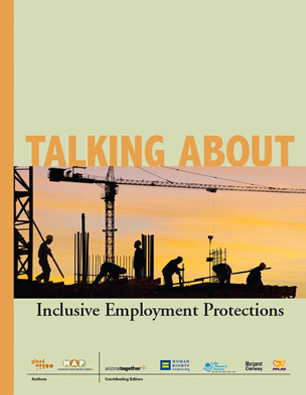The Bottom Line
The vast majority of Americans support the idea that hardworking LGBT employees should be protected from being unfairly fired from their jobs. However, most Americans don’t realize that in most of the U.S., employers are still able to fire people simply for being gay or transgender.
Talking About Inclusive Employment Protections offers helpful conversation starters for opening people’s eyes to the harms that LGBT people experience in the workplace, as well as reminders to keep these vital discussions focused on our shared values of hard work, earning a living, and providing for oneself and one’s family.
- Talking About Inclusive Employment ProtectionsDownload




